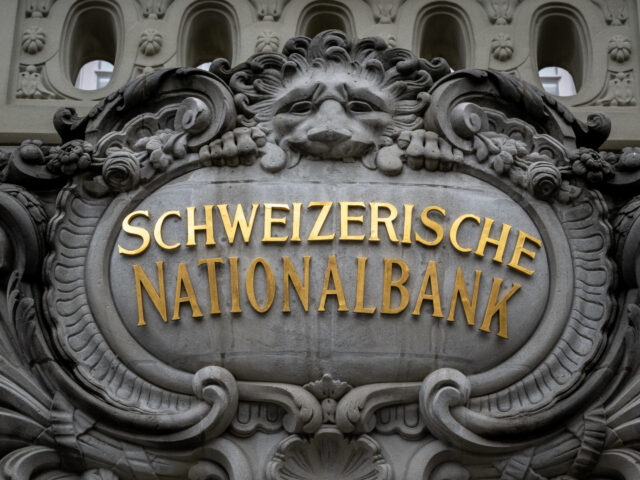Shares in Credit Suisse are tumbling after a forced merger with another Swiss bank were rejected. This comes as Switzerland’s largest political party signals it is against a state guarantee of the bailout for Credit Suisse after it received injection of liquidity from the Swiss National Bank (SNB) on Thursday with a loan of over 50 billion dollars.
Making the determination that Credit Suisse, the second-largest bank in the country and among the largest in the world, was vital to the stability of the Swiss financial system and economy, the SNB stepped in on Thursday to provide the bank with a loan worth 50 billion francs ($53.7/£44.3 billion). The move, they said, was in order to stabilise the lender amid concerns that it could be the second major bank to fail after the collapse of the Silicon Valley Bank in the United States last week, the German-language Swiss paper Neue Zürcher Zeitung reported.
According to the latest Financial Stability Report from the Swiss National Bank, Credit Suisse currently accounts for 13 per cent of all domestic loans and 14 per cent of domestic deposits. It is also one of two banks in Switzerland, alongside UBS Group AG, to have international holdings.
However, despite the central bank’s determination that Credit Suisse is vital to the national economy, Thomas Matter, a leading member of the populist right-wing People’s Party, said: “The government shouldn’t give Credit Suisse a state guarantee.”
“The Swiss National Bank was responsible for providing liquidity to Credit Suisse, and the SNB has acted,” Matter added.
Yet, the country’s second-largest party, the Social Democrats, have signalled that they would not be opposed to the state guaranteeing the loan, but a spokesman did caveat that the central bank “would have to be well compensated”.
Commenting on the state of affairs for the Swiss bank, analysts at JP Morgan said that Credit Suisse’s issues were more to do with “ongoing market confidence issues with its IB [investment banking] strategy and ongoing franchise erosion,” adding that they believed it is possible that the bank will be taken over by another entity.
It has been reported that Credit Suisse and its larger Swiss competitor UBS are opposed to a forced merger, with UBS said not to be interested in assuming the risk of its rival. The news saw Credit Suisse’s shares tumble as much as 12 per cent in trading so far today.
Meanwhile, chief economist at Capital Economics, Neil Shearing said that “the problems at Credit Suisse are very different to those that brought down SVB a few days ago,” but that “they serve as a reminder that as interest rates rise, vulnerabilities are lurking in the financial system.”
Even so, shares in Credit Suisse surged in early trading in European markets by over 30 per cent on Thursday following the announcement of the central bank liquidity injection.
Credit Suisse’s position came into question last week after the US Securities and Exchange Commission (SEC) contacted the bank to let it know that it was in threat of providing misstatements on its cashflow accounting for 2019 and 2020, forcing the bank to delay the publication of its annual report to this week.
The bank admitted on Tuesday that there was “weakness” in its books, which they claimed arose as a result from a “failure to design and maintain an effective risk assessment process to identify and analyze the risk of material misstatements”.
This admission led analysts such as Robert Kiyosaki to warn that Credit Suisse could be the next major bank to fail, after the woke, ESG-obsessed Silicon Valley Bank collapsed last week, marking the largest bank failure since the 2008 global financial crisis.
Follow Kurt Zindulka on Twitter here @KurtZindulka

COMMENTS
Please let us know if you're having issues with commenting.